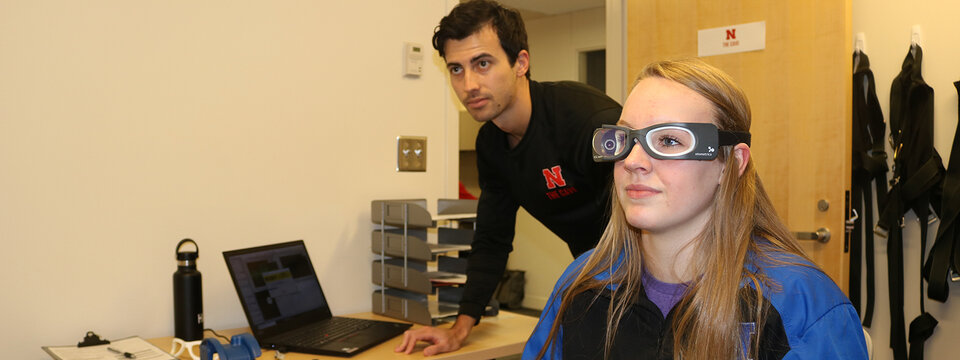
Application to the Au.D. Program
Our admission standards include prerequisite courses, cumulative undergraduate GPA, letters of recommendation, personal statement, and—for non-native speakers of English—acceptable English language proficiency. As of May 2022, the GRE is no longer required.
Prerequisite Courses, General Undergraduate Courses:
The following is a list of general undergraduate courses required for admission into the AuD program or completion prior to graduation with the AuD degree. For each course listed below, students must have earned a C or higher grade. Advanced Placement (taken at the high school level) for college credit can be used towards fulfilling the general requirements, only if the credit was granted by the university and appears on the student’s transcript. Similarly, placement exams from a university that places a student above college algebra suffice for the mathematics requirement. Science courses in the audiology major curriculum may not be counted toward the general requirements.
- Statistics
- Life Sciences (ex. Human Anatomy, Physiology, Neuroanatomy, Neurophysiology, Genetics)
- Chemistry or Physics
- Behavior and/or Social Sciences (ex. Psychology, Sociology, Anthropology)
- Mathematics (College Algebra or higher)
Prerequisite Courses, Communication Sciences and Disorders Undergraduate Courses:
The following is a list of recommended prerequisites for admission into the AuD program. We believe students who have these prerequisites are best set up for academic success. Although these courses are recommended, they are not required, and we will consider students who have not completed these prerequisites for admission. If a student does not have any of the communication sciences and disorders courses listed below, then we might recommend that you complete these courses prior to applying or enrolling in our AuD program.
- Anatomy & Physiology of the Speech & Hearing Mechanism
- Hearing Science
- Hearing & Balance I (Introduction to Audiology)
- Auditory Rehabilitation
- Research Methodology in Speech-Language Pathology and Audiology
Minimum Admission Standards:
- At least a 3.0 cumulative undergraduate GPA on a 4.0 scale.
- Three letters of recommendations attesting to the student's ability to complete a program of graduate studies. Typically, the letter authors do not have any family connection to the applicant and at least two hold an advanced degree.
- Personal Statement.
- For non-native speakers of English, acceptable English language proficiency as determined by the Office of Graduate Studies.
Exceptions to the Admission Criteria:
Completed applications are reviewed and evaluated by the program's graduate admissions committee. Occasionally, students who do not meet one of the above standards but who show promise may be accepted.
Visit the Office of Graduate Studies website and submit the following:
- Online application
- Transcripts –Transcripts can be unofficial until an admission offer is extended, then official documents will be required
- TOEFL scores – need to be submitted by non-native English speakers (Institution code = 6877; Department code = 77)
- Financial Resource Certification (International students only)
- Resume/vita
- Personal statement of purpose/ goals
- Prerequisite courses
- Names and contact information for three references of your choosing to submit letters of recommendations. The system will automatically email the specified people and request that each upload a letter of recommendation.
- Assistantship / Fellowship Application (optional)
- Writing Sample (optional)
Tips for developing a competitive application
Deadline for Au.D. Applicants
January 15. (Fall admission only)
Contact graduate@unl.edu with any questions regarding transcripts. All other application process questions can be sent to Jill England at jill.england@unl.edu.
Visit an Upcoming Open House
Tuesday, October 28, 2025: Virtual Open House, 6:30 – 8:00 PM
Friday, April 3, 2026: In-Person Open House, 12:00 – 4:30 PM
Funding Opportunities
Each year from Fall 2017 through Spring 2021, more than 76% of students in our AuD program have been awarded some level of funding during that academic year. Types of funding available include: department fellowships, graduate assistantships, and federal, state and university grants and contracts. For more information, visit our Funding Opportunities webpage. Contact Graduate Coordinator Jill England with questions by emailing jill.england@unl.edu.